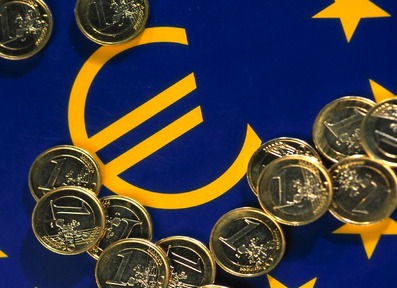The UK is set to lose its veto on the EU budget at the end of this month as controversial elements of the Lisbon Treaty are put onto the statute books.
On the 31st October, 43 major policy areas will be handed over to be decided by ‘Qualified Majority Voting’ meaning final decisions will rest at European level rather than national level.
This comes at the same time as Theresa May, the Home Secretary, will opt back in to 35 Justice and policing measures including a European Police Office, European Police Training College, the sharing of information relating to criminal investigations and rules on asset freezing.
The changes mean that no individual country will have a veto in the matters covered by the Treaty which along with the EU budget includes energy policy, a common defence policy and even the withdrawal of a member state from political union. Thus a vote to overturn policy on, for example, renewable energy targets or tracking would require a ‘double majority threshold’ of 65 per cent of the EU’s population and 55 per cent of member states from the 28 countries represented in the Council.
This would include situations where a national parliament disagreed with the decision which was taken.
The 2015 EU budget will have its first vote by MEPs at the next Plenary session in Strasbourg next week. There is usually a fight between the European Commission, the Council where representatives of national governments meet and vote, and MEPs who are the directly elected representatives in the European Parliament over the levels of spending, with MEPs voting for budget increases and the Council urging for more prudence.
Last year the EU budget was regularly in the headlines after the Prime Minister David Cameron threatened to veto any budget proposals which he considered to be ‘too high’
“The EU should not be immune from the sorts of pressures we have had to reuse spending” he told reporters in Brussels.
The high profile campaign against excessive EU spending by Mr Cameron started in 2012 and led to talks being put on hold. The European Commission had initially proposed a financial agreement of £841 billion spending, a five per cent increase on the year before.
The Prime Minister faced considerable opposition from major EU players including France, Italy and Spain with Mr Hollande threatening to use his veto if money for French agriculture was not sufficient.
The battle of the budget was seen to be won by Mr Cameron as spending plans were cut for the first time ever in the EU’s history – although British contributions themselves increased.
This year’s budget proposed by the European Commission amounts to EUR 145, 599,3 million in commitments which works out to be a 1.4 percent increase over the 2014 budget.
MEPs have requested that ‘the EU budget should in no way be perceived…as a burden to national budgets’ * but as the results of the European Elections earlier this year show, Brussels still has a long way to go if it wishes to prove its relevance to the day to day lives of EU citizens.
Meanwhile for those wanting fundamental change and withdrawal from the EU, this latest chunk of power moving away from nation states to the EU will surely strengthen their arguments.
*Draft Report by the Committee on Budgets 2014/2040(BUD)

COMMENTS
Please let us know if you're having issues with commenting.